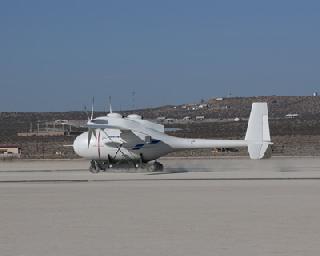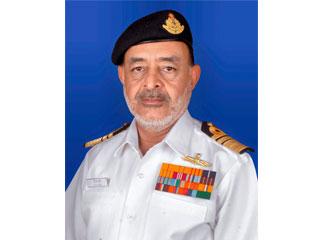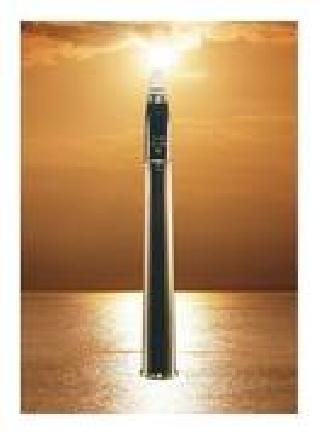
Boeing Phantom Eye. Photo: NASA.
WASHINGTON (PTI): Boeing Tuesday announced a "new era" in intelligence gathering when the US aviation giant tested its new drone that can stay airborne for four days without refuelling completed its first autonomous flight, despite a rough landing.
The energy-efficient liquid-hydrogen powered Phantom Eye's maiden flight was held on June 1 at NASA's Dryden Flight Research Centre at Edwards Air Force Base, California.
"This day ushers in a new era of persistent Intelligence, Surveillance and Reconnaissance (ISR) where an unmanned aircraft will remain on station for days at a time providing critical information and services," said Darryl Davis, president, Boeing Phantom Works.
"This flight puts Boeing on a path to accomplish another aerospace first -- the capability of four days of unrefuelled, autonomous flight," Davis said.
The first flight of the unmanned aerial vehicle (UAV) lasted 28 minutes and the Phantom Eye reached an altitude of 4,080 feet (1,244 metres) and a cruising speed of 62 knots.
The autonomous aircraft, with its 150-foot wingspan and powered by energy efficient liquid hydrogen, completed its first take off and landing June 1, Boeing said in a statement.
However, after touching down, the vehicle sustained some damage when the landing gear dug into the lakebed and broke, it said.
Phantom Eye brings a new level of high altitude long endurance (HALE) to the aviation world. It's efficient and environmentally responsible liquid-hydrogen propulsion system is a first of its kind, creating only water as a byproduct of its engines. The aircraft can also carry a 450 pound (204 kg) payload, the company said.
"This flight demonstrated Phantom Eye's initial handling and manoeuvrability capabilities," said Drew Mallow, Phantom Eye programme manager for Boeing.
 Previous Article
Previous Article Next Article
Next Article













The Indian Air Force, in its flight trials evaluation report submitted before the Defence Ministry l..
view articleAn insight into the Medium Multi-Role Combat Aircraft competition...
view articleSky enthusiasts can now spot the International Space Station (ISS) commanded by Indian-American astr..
view article